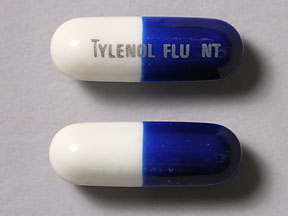Acetaminophen/diphenhydramine/pseudoephedrine Interactions
There are 699 drugs known to interact with acetaminophen/diphenhydramine/pseudoephedrine, along with 17 disease interactions, and 3 alcohol/food interactions. Of the total drug interactions, 44 are major, 636 are moderate, and 19 are minor.
- View all 699 medications that may interact with acetaminophen/diphenhydramine/pseudoephedrine
- View acetaminophen/diphenhydramine/pseudoephedrine alcohol/food interactions (3)
- View acetaminophen/diphenhydramine/pseudoephedrine disease interactions (17)
Most frequently checked interactions
View interaction reports for acetaminophen / diphenhydramine / pseudoephedrine and the medicines listed below.
- Advil (ibuprofen)
- Advil Cold and Sinus (ibuprofen / pseudoephedrine)
- Anusol (pramoxine/zinc oxide topical)
- Anusol-HC (hydrocortisone topical)
- Atarax (hydroxyzine)
- Benadryl (diphenhydramine)
- Benadryl Allergy Plus Cold (acetaminophen / diphenhydramine / phenylephrine)
- Benylin DM (dextromethorphan)
- Biotene Moisturizing Mouth Spray (saliva substitutes topical)
- Bonine (meclizine)
- Cymbalta (duloxetine)
- Dexilant (dexlansoprazole)
- Dymista (azelastine / fluticasone nasal)
- Evening Primrose Oil (evening primrose)
- Ex-Lax Maximum Relief Formula (senna)
- Excedrin Migraine (acetaminophen / aspirin / caffeine)
- Gaviscon Extra Strength (aluminum hydroxide / magnesium carbonate)
- Mirena (levonorgestrel)
- Multivitamins and Minerals (multivitamin with minerals)
- Myoflex (trolamine salicylate topical)
- Nicorette (nicotine)
- Omega 3-6-9 Complex (omega-3 polyunsaturated fatty acids)
- Omega-3 (omega-3 polyunsaturated fatty acids)
- One-A-Day WeightSmart (multivitamin with minerals)
- PC Pen VK (penicillin v potassium)
- Polysporin Ophthalmic (bacitracin / polymyxin b ophthalmic)
- Prometrium (progesterone)
- Pulmicort Nebuamp (budesonide)
- Tylenol (acetaminophen)
- Vitamin C (ascorbic acid)
Acetaminophen/diphenhydramine/pseudoephedrine alcohol/food interactions
There are 3 alcohol/food interactions with acetaminophen / diphenhydramine / pseudoephedrine.
Acetaminophen/diphenhydramine/pseudoephedrine disease interactions
There are 17 disease interactions with acetaminophen / diphenhydramine / pseudoephedrine which include:
- alcoholism
- liver disease
- depression
- cardiovascular disease
- PKU
- anticholinergic effects
- asthma/COPD
- cardiovascular
- renal/liver disease
- glaucoma
- liver disease
- resp depression
- GI narrowing
- PKU
- BPH
- diabetes
- glaucoma
More about acetaminophen / diphenhydramine / pseudoephedrine
- Compare alternatives
- Drug images
- Side effects
- Dosage information
- Drug class: upper respiratory combinations
Related treatment guides
Drug Interaction Classification
| Highly clinically significant. Avoid combinations; the risk of the interaction outweighs the benefit. | |
| Moderately clinically significant. Usually avoid combinations; use it only under special circumstances. | |
| Minimally clinically significant. Minimize risk; assess risk and consider an alternative drug, take steps to circumvent the interaction risk and/or institute a monitoring plan. | |
| No interaction information available. |
See also:
Further information
Always consult your healthcare provider to ensure the information displayed on this page applies to your personal circumstances.


